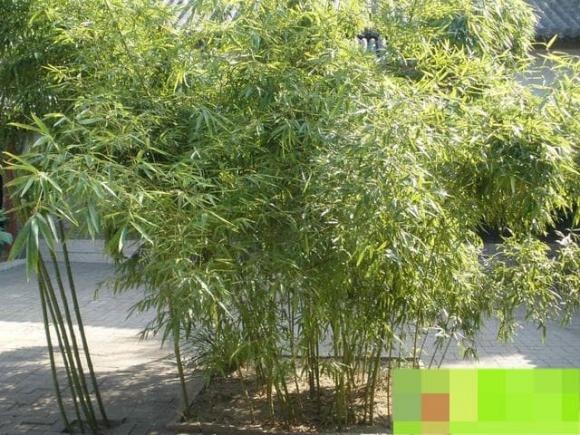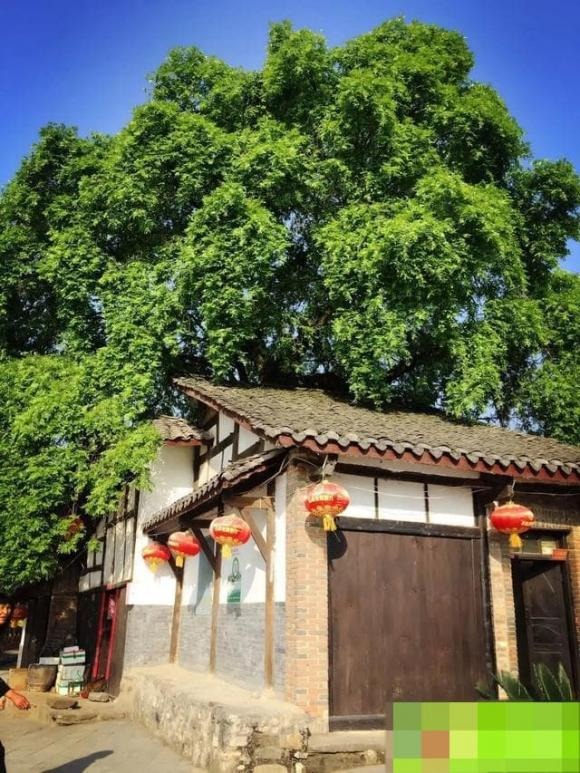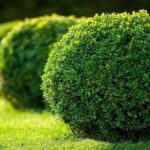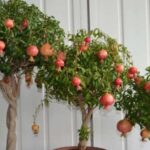In traditional culture, feng shui has always played an important role, and the saying, “Don’t plant bamboo in front of your house, plant fewer trees behind it,” is a testament to the influence of feng shui in community life. As simple as this saying may sound, it actually encapsulates the ancient wisdom and valuable experience in choosing a living environment.
Let’s start with the phrase, “Don’t plant bamboo in front of your house.”
Bamboo has long been considered a symbol of resilience, humility, and upward growth. However, why is it unsuitable to plant bamboo in front of your house? This is actually related to bamboo’s growth habit. With a robust and expansive root system, bamboo can easily affect and even damage the foundation of a house.
Additionally, dense bamboo groves can attract mosquitoes and impact the sanitary conditions of the surrounding environment. Moreover, bamboo planted in front of the house can block sunlight, reduce indoor brightness, and create a stuffy feeling. The ancients always emphasized “openness,” meaning that the front door should be wide open with a clear view, aligning with the principle of “qi” circulation in feng shui.

Bamboo, a symbol of resilience, humility, and upward growth.
Regarding the advice to “plant fewer trees behind the house, this is mainly related to safety and health concerns. Tall trees with deep and wide-spreading roots can damage the structure of the house, especially during the rainy season when high humidity causes the roots to expand. Additionally, fallen leaves, if not cleaned up promptly, can provide a breeding ground for bacteria and pests, affecting the health of those living in the house.
So, what happens if you do plant bamboo or trees? In reality, this isn’t an absolute taboo. It’s all about location, choice of plants, and management. For example, if you choose to plant dwarf bamboo in front of your house, maintaining an appropriate distance and regular pruning, it can not only avoid negative impacts but also enhance the beauty of your home. Similarly, when planting trees behind the house, choosing the right types of trees, maintaining distance, and proper care can help you avoid potential issues.

What if you do plant bamboo or trees?
In conclusion, many feng shui beliefs align with modern scientific principles for a healthy living environment. These principles remind us that when beautifying our homes, we should consider both aesthetic and practical aspects, as well as safety.
While enjoying the beauty that nature offers, we must also pay attention to harmonizing with nature to create a truly livable environment. Whether ancient or modern, the ultimate goal remains the same: to seek a comfortable, healthy, and harmonious living space.
The Golden Spot to Place Your Tiger Jaws: Luck Rolls In, Money Follows Suit
The Snake Plant, a striking and elegant addition to any home, boasts a multitude of benefits that set it apart from other houseplants. Its stately form exudes sophistication, while its air-purifying abilities and toxin-absorbing properties make it a natural wonder. Feng shui enthusiasts also revere this plant for its positive influence on the energy of a space, with its placement dictating specific auspicious meanings.
Is It Good for Family Feng Shui to Plant a Crape Myrtle Tree in Front of the House?
The Queen of the Night, the enigmatic Epiphyllum oxypetalum, is a captivating cactus with an alluring presence. With its ethereal beauty and enchanting blooms, it captivates those who encounter it. This exotic epiphyte, native to the tropical rainforests of South America, has earned its regal moniker due to the exquisite nature of its nocturnal blossoms. Under the cloak of darkness, the Queen of the Night reveals her true splendor, unfurling her delicate petals to the moonlight in a breathtaking display of nature’s magic.
What Does Planting a Pomegranate Tree in Front of Your House Mean? Unraveling the Ancient Wisdom Behind This Practice.
Growing pomegranate trees is not only about cultivating a fruit-bearing plant but also about nurturing a tree that holds auspicious feng shui value.




































